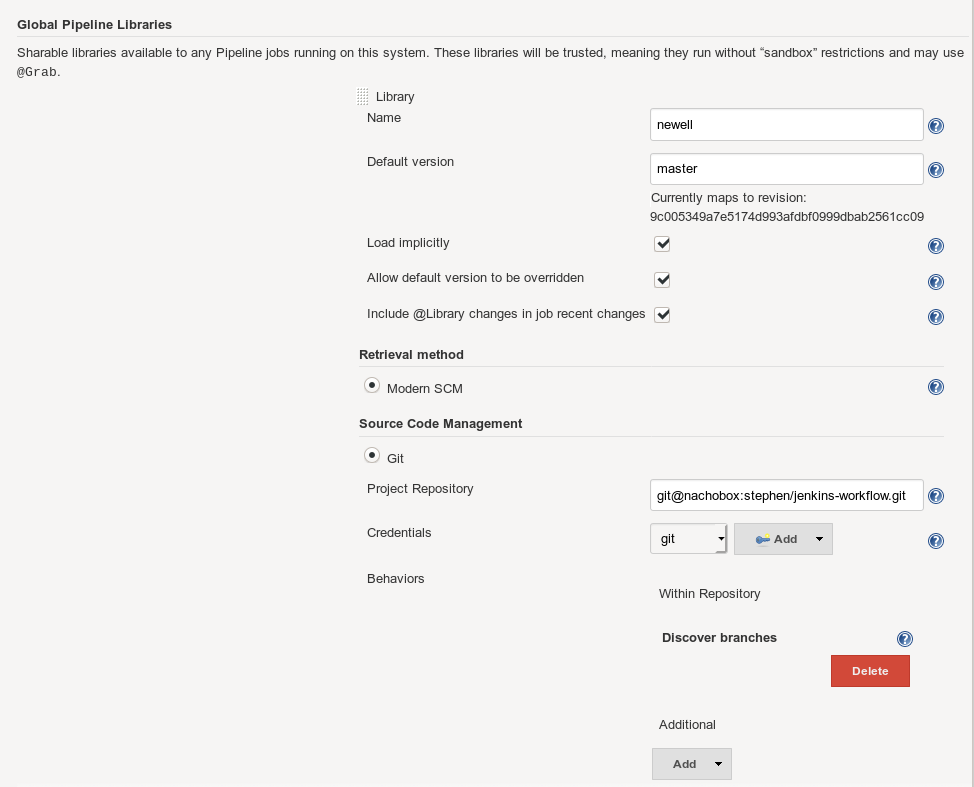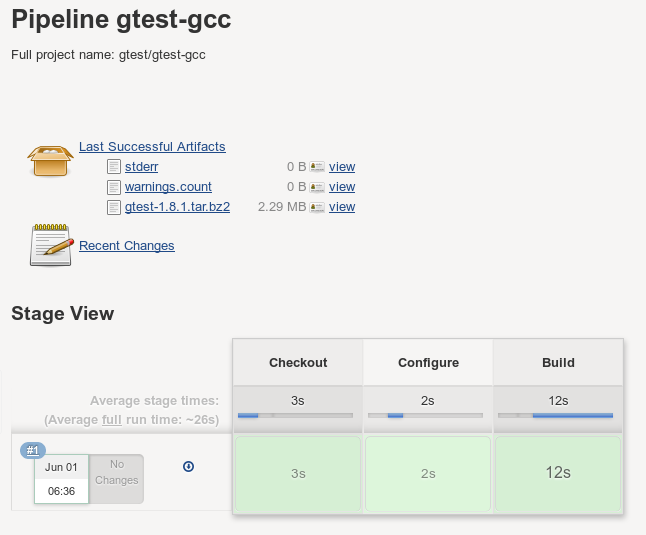Last time, I had my services up and running but only with the bare minimum configurations; it’s time to put them to work.
Gitea Setup
The first thing I wanted to do is setup Gitea, since then I can have Jenkins point there. I was able to create a repository out of the box and push without any problems (once I added my ssh key), but while checking the admin section I noticed anybody could register for an account. Since I’m not interested in letting random people into this system, I went ahead and disabled registration by editing app.ini.
[service]
# ...
DISABLE_REGISTRATION = trueAfter restarting Gitea, logging out and verifying the “Register” button didn’t work confirmed the change.
The second issue is that my README.rst files weren’t being rendered (yeah, I know the standard is Markdown these days, but I prefer reStructuredText). Gitea supports arbitrary rendering, so it was a simple matter of adding a new block to app.ini.
[markup.rst]
ENABLED = true
FILE_EXTENSIONS = .rst
RENDER_COMMAND = "rst2html.py"
IS_INPUT_FILE = falseAfter restarting Gitea again and reloading the repository page, my README is being rendered properly.
Jenkins Setup
The first thing you do with Jenkins is chose the plugins, so this is largely a matter of personal taste and needs. I turned off all the Java-related build options (I’m a CMake man) and Subversion (git or get out), but made sure to keep folders and pipeline enabled (these form the backbone of my workflow). I also enabled the JUnit plugin since that lets me view test results directly in Jenkins.
The plugins installed, I was prompted to create the admin user, and then I couldn’t get past a blank page. Neither nginx nor Jenkins logs showed anything weird was going on, but restarting Jenkins let me log in and get to the dashboard.

Clicking on “Manage Jenkins” however reported my reverse proxy was broken. After a bit of reading the documentation, I found the missing line in my nginx.conf file.
proxy_set_header X-Forwarded-Proto $scheme;After an /etc/init.d/nginx reload, the error went away.
The next step was getting Jenkins access to Gitea. Creating a keytab is easy (ssh-keygen ‑t rsa ‑b 4096), and so is creating a jenkins-nachobot user in Gitea and adding the public key. With that in place, I could add my Jenkins common library repository.

Eventually I’ll have to clean up my jobs to not implicitly load and not depend on master, but that’s something for future me to deal with.
Before I could actually start running builds on my work, I needed to get copies of GTest. I’m adamantly opposed to sub-modules, but since I build with ABI-breaking flags (iterator debugging), I need reliable versions of GTest; Jenkins is good at that.
I created a new folder for the jobs, then added a new Pipeline item that will leverage the common library I added a few steps earlier:
quickBuild {
git = 'https://github.com/google/googletest.git'
branch = 'release-1.8.1'
cxxFlags = '-D_GLIBCXX_DEBUG'
cmakeArgs = [
'-DCMAKE_INSTALL_PREFIX=/usr'
]
buildArchivePatterns = [
'*.tar.bz2'
]
package_method = 'cmake+install'
archive_file = 'gtest-1.8.1.tar.bz2'
}
After hitting save, then “Build Now,” I crossed my fingers.

I created another job for the clang build (gtest-clang), whose configuration looks very similar:
quickBuild {
git = 'https://github.com/google/googletest.git'
branch = 'release-1.8.1'
cxx = 'clang'
cxxFlags = '-stdlib=libc++ -D_LIBCPP_DEBUG=1'
cmakeArgs = [
'-DCMAKE_INSTALL_PREFIX=/usr'
]
buildArchivePatterns = [
'*.tar.bz2'
]
package_method = 'cmake+install'
archive_file = 'gtest-1.8.1.tar.bz2'
}
This build also worked as expected, meaning I had verified the following:
- Jenkins could access Gitea successfully, since that’s where my common pipeline libraries are stored. Since eventually I’ll move all my repos there, this is a good thing.
- Jenkins can use my common library, since that’s what defined quickBuild. Good news, since I’m pretty happy with that library.
- My toolchains are working. I’ll still need to add more tooling to support all my builds (I like to build with a few versions of gcc, plus I’ll need cppcheck and lcov), but the skeleton is in place.